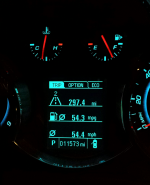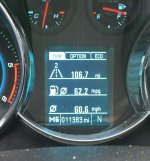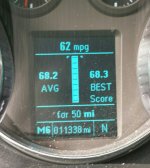OP
handirifle
Veteran Member
Yea I am fully aware that DPF's are a diesel thing, and all of the big three use DEF now as opposed to an extra diesel injector in the exhaust for "regen". THe claim is the mileage numbers are back up because of it, but you are still using some sort of fuel, do DIESEL mileage s back up but factor in the cost of DEF and it mitigates that somewhat. Although DEF usage is not as high as was diesel fuel for regen purposes.
Unburned gas, unburned particulates, it's still making up for incomplete combustion.
Unburned gas, unburned particulates, it's still making up for incomplete combustion.


